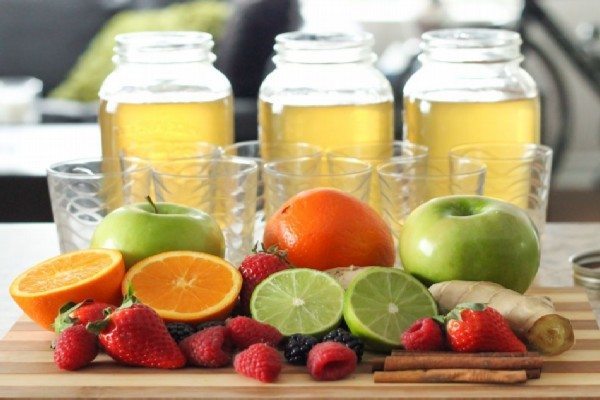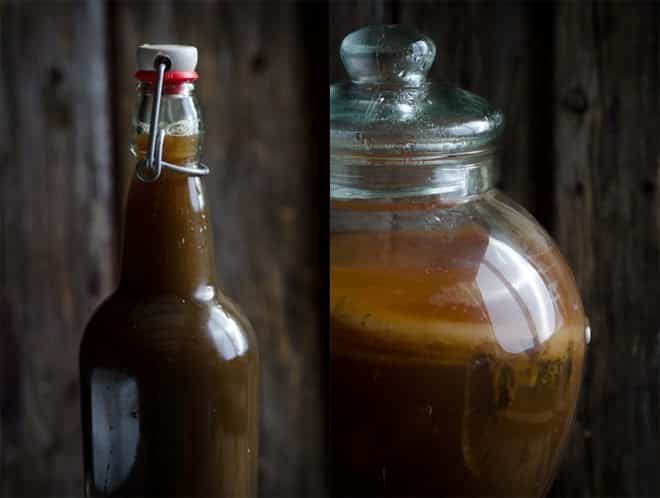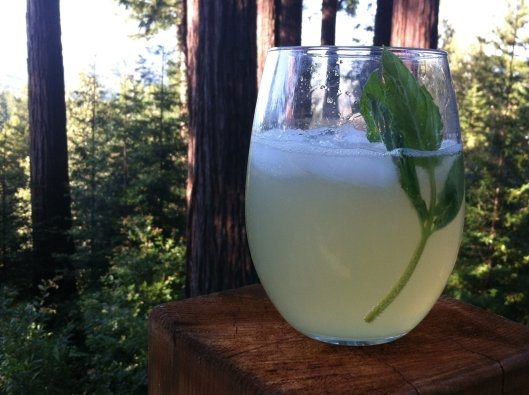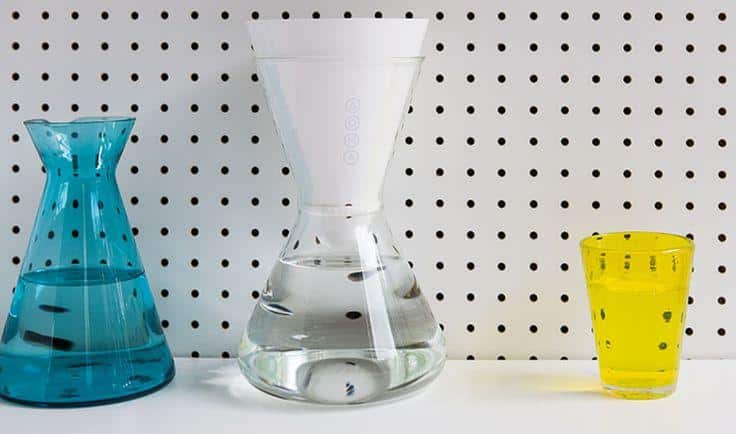What is the Best Water For Kombucha
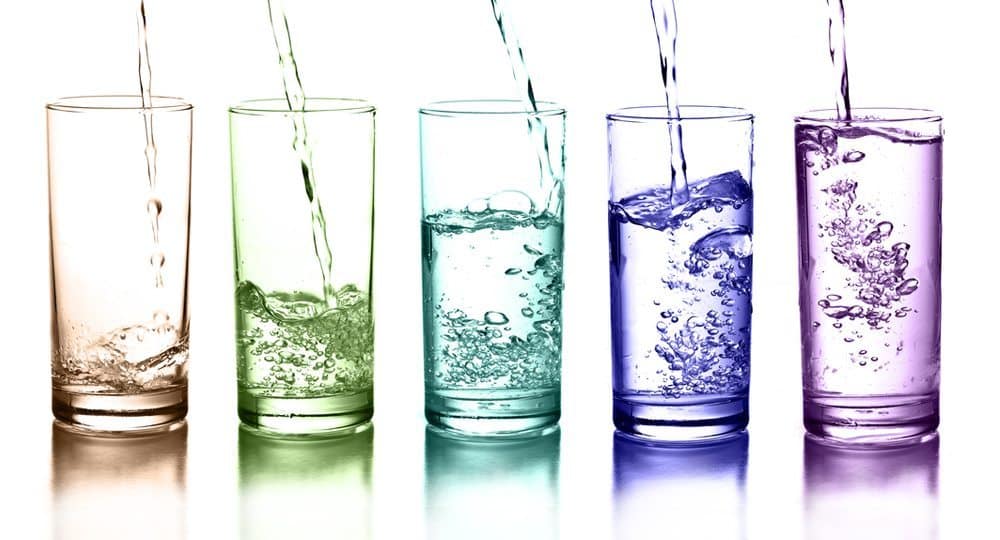
People have been culturing kombucha for hundreds of years in Asia, and today people everywhere are making high-quality kombucha in commercial breweries and home kitchens alike. Two thousand years ago, no one was thinking about “reverse-osmosis distillation” or “activated charcoal filters” and from that it’s easy to conclude that it’s not really necessary to worry about the type of water you use for making your own kombucha. However, there are some things to keep in mind if you want to make the best possible brew.
General Types of Water
We can break water down into the 4 categories:
Mineral Water
- Comes from very deep subterranean reservoirs
- Must be from a pure verified source
- Has tested nutritional properties
- Contains NATURAL minerals
- Bottled at source
- Regulated
Spring Water
- Comes from subterranean sources
- Does not have to be verified as pure
- Does not have to contain a constant amount of minerals
- Can be bottled from multiple sources
- Some but not all regulation
Tap Water (Filtered & Treated Water)
- Mostly comes from ground and or surface water (such as lakes, dams, bank filtrates)
- Usually processed before it is suitable for consumption (quality may be variable and may contain chemicals like chloride and extra metal content from pipes)
- Multiple treatment procedures and chemical ingredients are allowed during processing
Table Water (Distilled Water)
- Combination of water from different sources (tap water for example) and can have other ingredients added, for example, like sodium.
- Physically and chemically purified
- Can be produced and bottled everywhere
- May also be served using a tap system
- Limited official regulations
The Purer the Better
Your goal is to make sure that there are as few things slowing down your SCOBY as possible. Of course, it’s also important to keep your own health in mind! Using contaminated water won’t just affect your SCOBY, it will affect you. You might think that the best kombucha is brewed when the process is as “natural” as possible, and that using the fresh water from the sparkling stream that runs by your house will give you Nature’s perfect brewing medium. But if there’s a herd of cows on the other side of the hedge who enjoy drinking from (and pooping near) that stream, you could be exposing yourself to potentially harmful bacteria like Cryptosporidium. Even a stream or river in the middle of the wilderness may not be safe to use. For example, people have contracted giardiasis (an intestinal disease) from drinking water downstream of a beaver dam.
In other words, you need to use filtered water.
Filtered Water (Distilled Water): The Best Choice
The best option and we feel the ONLY option you should consider if you want the best quality Kombucha and a healthy SCOBY.
No matter if you’re in the middle of the woods or in the middle of the city, your water supply may be contaminated. If you’re on any type of municipal water system, you’re dependent on your local water board, which sets up purification and treatment systems so that the water that comes out of your tap is as healthy as possible. Unfortunately, many of the chemicals that are commonly used in the treatment process create problems for your SCOBY and also can affect the flavor of your kombucha.
Using a water filter at home to treat your tap water is one way of eliminating these problems. You can buy a simple treatment jug that contains an activated charcoal filter and this will remove most of the impurities, including the major water-borne parasites and common treatment chemicals like chlorine. More expensive and larger units use block charcoal for an even finer filtration. With each of these types of containers, you fill the container with tap water and wait for it to trickle through the filter before pouring it out. Because these are generally smaller than one gallon, they’re not as practical if you brew large batches of kombucha.
You can also install a water filter under your sink or in the faucet so that your water is automatically purified when it comes out of the tap. This is the easiest way to remove chlorine and common contaminants from your water. They range in price and size, from a small filter that fits into the end of the faucet (which must be replaced regularly) to large self-contained units that are fitted into the plumbing itself.
The ultimate in filtration comes from the distillation process. Home distillation units are generally large and expensive, and unless you live in an area where there is a serious concern about potentially fatal water-borne pathogens or highly toxic chemicals, you probably don’t need to purchase a distillation system. Many supermarkets sell distilled water by the jug, and you can definitely use this water to make your kombucha. There won’t be any minerals to affect the kombucha, but you won’t be getting any minerals in the brew, either. Some experts believe that using distilled water will weaken the SCOBY over time, because the microorganisms do use small amounts of minerals normally present in most water.
Mineral Water: Should You?
Mineral water is not the best water for Kombucha, but in a pinch or for a brew or two, you can get away with it. But for long term use, you do NOT want to use mineral water to brew Kombucha.
If your water has a high mineral content, those extra minerals in the water may harm your SCOBY over the long term. In general, well water has a fairly high percentage of minerals, as does natural or bottled spring water. In fact, many brands of spring water advertise the health benefits of mineral water – and there are benefits, but they’re for you, not your SCOBY.
Generally, mineral water (especially from natural sources such as springs) is the best water to drink, but for making Kombucha, not so much, because those minerals may damage SCOBYs over time.
It’s possible to use bottled mineral water for making kombucha, but if you want to experiment with different brands, be sure you have a good backup supply of SCOBYs first. Avoid brands that have high levels of calcium and magnesium. These are the same minerals that can cause problems when using “hard” tap water.
Tap Water: Only as a last Resort
You might be able to use tap water, depending on how clean that water is and the amount of chlorine present. However, you really, really should be opting for filtered water. Tap water should only be your last resort, if you don’t’ have any other water options available (unlikely).
Tap water seems like the logical thing to use for making kombucha, but there are several potential problems:
• The water might be too “hard” (contain too many minerals).
• The water might be too “soft” (not have enough minerals).
• The water likely contains chlorine, which kills bacteria (and therefore the SCOBY).
• The water may contain toxic chemicals and/or parasites.
Before you use tap water, you should check with your local water board to get a list of what chemicals and processes are used to treat the water. This will help you decide what type of filter to use. As mentioned above, filtration is the best way to get a good water supply for your kombucha. Activated charcoal filters will remove most of the chemicals and contaminants from normal tap water, including chlorine.
Even if you’re confident that your tap water is neither too hard nor too soft, and free of other contaminants, there’s probably some chlorine in it; most water treatment systems use chlorine as part of the process. There are two ways to get rid of chlorine in tap water:
Boil the tap water for 20 minutes so that the chlorine evaporates. Because you’ll lose at least a third of the water to evaporation, you’ll need to start with one and a half gallons of water for every gallon of boiled water you want in the end.
You can also simply let the water sit for 24 hours in a large wide container to expose as much of the surface as possible. You’ll still lose a little to evaporation, but not much.
Another advantage of boiling water is that it also kills bacteria and parasites. If you choose to use tap water, it’s a good idea to boil it for at least 10 minutes even if you don’t have to worry about chlorine.

